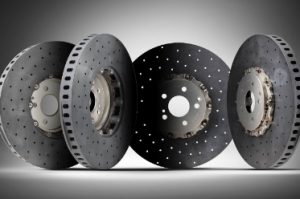Innovation ‘the key to manufacturing success’

THE future is bright for manufacturing in the North West, thanks to the agility, innovation and scale of the sector to this region.
This is according to an expert panel who took part in The Big Manufacturing Debate held at the Blackburn-base of wallpaper manufacturer Graham & Brown earlier this month, in association with international law firm Squire Patton Boggs.
The discussion centred on the findings of the Manufacturing Review 2015, a major project undertaken by TheBusinessDesk and Squire Patton Boggs which included a survey and round table discussions across the North West, Yorkshire and West Midlands.
Along with skills, innovation, infrastructure and globalisation, the session also focused on the forthcoming EU referendum – where a show of hands among the 100 or so attendees – revealed overwhelming support for a ‘No vote’ on June 23.
The expert panel featured: Alison Treliving, partner at Squire Patton Boggs; John Carter, operations director Graham & Brown; Damian Waters, regional director at CBI; Steve Warren, North West regional director of EEF, Clive Drinkwater, regional director UKTI North West, and Mike Damms, chief executive of Lancashire Chamber of Commerce, board member of the Lancashire LEP and chair of the Lancashire Strategic Manufacturing Group.[VIDEO: 920]
John Carter said innovation was key to Graham and Brown’s longevity and success – the £84m turnover business celebrates its 70th anniversary this year.
“If you innovate you can save money through your supply chain, become more efficient, deliver better margins – you don’t actually need more volume.
“We invest a lot in new product innovation, it’s important that you don’t stand still.”
Steve Warren said that as a result of global issues – the dramatic slump in the oil & gas sector, the collapse in the price of steel and concern over Chinese growth rates – it is “not all sweetness and light” in the sector.
Mike Damms said: “Agility is key – we’ve got to be better at pulling R&D out of universities. In 1930 there were 220,000 people employed in East Lancashire and there are 45,000 today. We need to be loud and proud.”
Damian Waters agreed, stating: “Generally optimism levels are positive, but there is a struggle with innovation and product development.”
Clive Drinkwater said exporting alongside innovation, can have a transformative impact on businesses: “New products, new markets and of course innovation are really important. There is very clear evidence that businesses that export are much better at adapting and changing, because you are exposing yourself to the rigours of international competition. If you want to grow your exports you have to grow your manufacturting base.[VIDEO: 918]
“There is a clear link between exports and productivity – in the first year of exporting a business is likely to see a 34% increase. The North West is well-placed in terms of investment, but generally-speaking the UK is at the lower end of the G20 in terms of investing in capital equipment.”
Damian Waters concurred: “We have been behind the curve in investing and productivity and innovation. We throw people people at the problem rather than innovate.”
The panel agreed that manufacturing continues to suffer from an image problem.
Steve Warren stated: “Manufacturing is not seen as attractive or glamorous. It’s a part of the EEF’s remit to bring it into the public eye more.
John Carter said: “We work with colleges and schools. There is a problem and a myth that you go into manufacturing if you have failed to get into university, but is it’s not a second-class occupation. It can give you a great career, good earnings, skills and training.[VIDEO: 922]
“Unless we work with youngsters you’ll never change the negative perceptions.”
Mike Damms praised the work of Burnley company AMS Neve for its “inspirational” Primary Engineer initiative which aims to encourage interest in engineering and enterprise amonng children.
“We can castigate government all we like, but industry has to take a lead. Businesses have to go into schools because we need skills for the future.”
Clive Drinkwater added: “Yes, there is an image problem – engineering is not about spanners and an oily rag. We need more STEM subjects taught in schools and we need to make it more fashionable.
Waters concluded: “We do have to do more in schools, and the onus is on business and more people have to step up to the plate.”
While the panel agreed it is important to have more you people coming into industry, there was concern too about a “senior level skills gap” – caused by major businesses not doing enough to develop their people to meet the needs of an increasingly technology-led and globalised world.
Clive Drinkwater said: “I started my career in industry and there was an in-house development programme – I worked for a FTSE 100 company which funded my MBA. I worry that many businesses are not doing that now.
In terms of engagement between ‘big business’ and academia, there was a view that the likes of Uniliver and Rolls-Royce are forging successful links with universities on product development, but among smaller firms there is a view that it’s ‘not for me’.
Steve Warren said: “Leadership is so important to productivity, which I don’t think is really about just investing in new equipment but also about getting the workforce to buy in to a shared vision.
“Innovation is not just about engineering new products, but it spans the whole product life-cycle.”
On the thorny question of Brexit, the consensus was that the ‘stay-in’ campaign was not demonstrating effectively the benefits of remaining in the EU, and that companies have a role to play in raising the issue with their staff.
John Carter said: “Some of the regulation we face from Brussels is a joke at times, and there is no easy answer, but 40% of our sales is to the EU and the big fear I have about a ‘yes’ vote is about the implications for import duty.”
Damian Waters added: “It’s important for businesses to share their knowledge and understanding of the issues.”
Click here to view a gallery of pictures from the event








